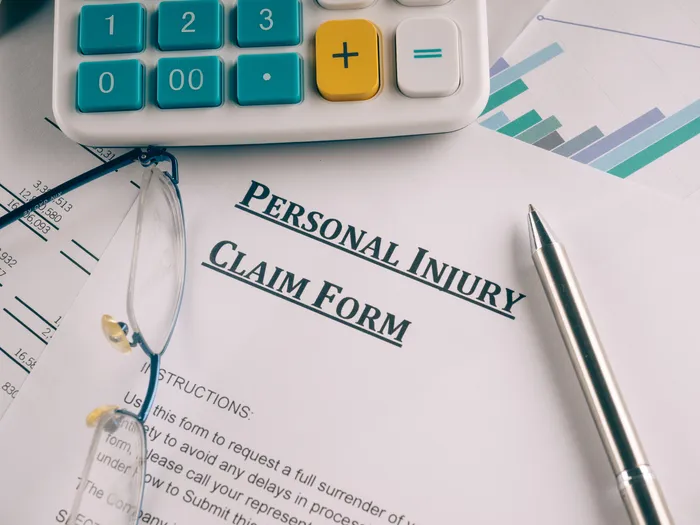6 min read time
Table of Contents
How to Dispute a False Car Insurance Claim
Dealing with a false car accident insurance claim can be a stressful and overwhelming experience.
Knowing what to do after a fraudulent claim is filed against you is vital to avoid financial loss and unnecessary stress.
Gather Evidence
This step you should take following a false insurance claim being filed against you is to gather all relevant evidence. This evidence may be:
- Photographs: Take pictures and videos of the accident scene. Be sure to capture anything that may seem staged or exaggerated.
- Witness Statements: If there was a witness who saw the accident, be sure to collect a statement from them, as an independent witness statement can be crucial in fighting a false insurance claim.
- Police Report: If a police officer was called to the accident scene, it's important that you obtain a copy of the police report they filed, as this will provide an unbiased account of the accident.
- Dashcam Footage: If your car was equipped with a dashcam, be sure to review the footage. Look for anything that might disprove the statements the false insurance claim makes against you.
- Repair Estimates: Fraudulent insurance claims often inflate the repair costs of vehicles or other personal property, so it's vital that you obtain a professional repair estimate to understand the true cost.
Notify Your Insurance Company
The next step following a false insurance claim is to inform your insurance provider of a possible fraudulent claim being filed against you.
It's essential to be clear in your communication and answer any questions the insurance company may ask you, as doing so can expedite the insurance company's investigation into the fraudulent claim.
Dispute the False Claim
Draft a formal dispute letter to your insurance company; this letter should include the following:
- Policy Information: Ensure the letter includes your insurance policy number and other identifying information.
- Detailed Account of the Accident: Provide a clear and factual statement on what happened in the car accident, and reference any evidence you may have gathered.
- Evidence: Provide your insurance company with all the evidence you gather related to the false insurance claim, such as photographs, witness statements, and police reports.
- Request an Investigation: Request that your insurance company thoroughly investigate the potentially fraudulent claim.
To ensure that you submit an effective dispute letter, it's recommended that you contact an experienced personal injury attorney to draft and submit a letter on your behalf.
File a Complaint with the State's Insurance Department
If you have already filed a claim dispute with your insurance provider and feel they are not handling the false insurance claim properly, you may file a complaint with your state's insurance department. Those living in Nevada can file a complaint by going to the Nevada Insurance Department's website.
Seek Legal Representation
At any moment, if you feel that the false claims dispute is not going in your favor, you should contact a personal injury attorney.
Having a personal injury to represent you in your false claims case ensures that you receive correct guidance on your rights and gives you more powerful legal options to take against the fraudulent claimant.
What Are the Signs of a Fraudulent Insurance Claim
Knowing the signs of insurance fraud is the number one way to prevent it. By being able to identify the signs of a false insurance claim, you can protect yourself from becoming a victim of a false accident claim.
Inconsistent Details
One of the most common signs of a fraudulent personal injury claim is inconsistencies in the claimant's story. Such inconsistencies can be:
- Contradictory Statements: Analzye the client's story and look for statements that contradict each other.
- Lack of Detail: If the claimant is unable to provide in-depth details of the car accident, such as details on time, location, or order of events, it may be a sign of insurance fraud.
- Unclear Descriptions of Damages: If the claimant gives vague or exaggerated descriptions of the damages and injuries they suffered, they may be attempting to increase the value of their claim, which is insurance fraud.
Suspicious Claim Filing Time
The time an accident claim is filed can be a tell-tale sign of insurance fraud. Some suspicious claim file times you should look out for are:
- Immediately After a Policy Purchase: If someone files a claim immediately after purchasing an insurance policy, it may be a sign of fraud.
- Late Reporting: In a situation where the claimant delays reporting the accident to the insurance company without a valid reason.
Pressuring for a Quick Settlement
If the person making an accident claim against you is pressuring your lawyer for a quick settlement, it may be a sign of insurance fraud.
Pushing for a quick settlement may indicate that the claimant is hoping to obtain payment before the fraud is discovered.
Lack of Documentation
If you suspect that a false claim is being filed against you, ensure that you and your personal injury attorney carefully review all documents submitted with the claim.
Try to identify any altered, fake, inconsistent, or suspicious documents.
What Happens If You Make a False Insurance Claim
Making a false claim against another person can result in significant legal consequences and financial loss.
Some punishments you may face if you file a false claim are:
- Criminal Charges: Under Nevada Revised Statutes (NRS) 686A.291, insurance fraud is a category D felony and could result in imprisonment for 1 to 4 years and fines up to $5,000.
- Policy Cancellation: Once your insurer discovers that you're committing insurance fraud, they may cancel your policy, leaving you without coverage. In addition, other insurance companies could be reluctant to provide you with coverage following your attempted fraud.
- Civil Lawsuits: The insurance company or party you attempt to commit insurance fraud against may file a lawsuit to seek compensation for damages, such as legal fees, investigation fees, and any payouts that were made.
It's best never to commit insurance fraud as it will cause devasting financial and reputational damages; however, if you have a legitimate accident claim and wish to speak with a personal injury attorney, call (702) 566-3600 today for a free consultation.
The Legal Options for Fighting Against False Insurance Claims
Having a false accident claim filed against you can be a stressful experience that can have devasting financial effects if not handled correctly.
Knowing the possible legal options you can take following a false accident claim is critical to ensuring a smooth experience.
Defamation Lawsuit
If the false insurance claims damaged your reputation, your lawyer may be able to file a defamation lawsuit against the claimant.
To succeed in a defamation lawsuit, your attorney must prove that the false claim was made against you with malicious intent; if successful, you may be able to obtain compensatory and punitive damages.
Fraud Lawsuit
Your attorney can file a fraud lawsuit against the claimant if the fraudulent personal injury claim was filed with the intent to obtain financial gain. This lawsuit could get you financial compensation and punitive damages.
Seek Injunctive Relief
If the false accident claim is causing you financial harm, your attorney can seek injunctive relief, which means that the court will order the claimant to cease their activities, allowing you to obtain protection while taking legal action against the claimant.
How Common Are False Insurance Claims?
According to the Insurance Information Institute, about 10% of property-casualty insurance claims are fraudulent, costing insurance companies billions of dollars each year. The FBI estimates that around $40 billion is lost each year.
What Is Insurance Fraud
Insurance fraud is any act that is committed with the intent to deceive an insurance company to receive a financial payout.
Insurance fraud contains acts such as providing false information, exaggerating injuries and damages, withholding information from an insurer, or staging a car accident.
Hard Fraud vs Soft Fraud
Hard Fraud
Hard fraud occurs when someone plans or stages a loss, such as a car accident, theft, or fire, to obtain compensation through their insurance policy.
A few examples of hard fraud are:
- A Staged Car Accident: Intentionally causing car accidents in order to claim compensation is hard fraud.
- Self-Arson: Purposely setting fire to a property with the intent to collect an insurance payout.
- Faking Theft: Claiming items were stolen when they were not.
Soft Fraud
Soft fraud, also known as "opportunistic fraud," occurs when someone exaggerates or lies about certain aspects of a legitimate injury claim in order to increase the payout.
Examples of soft fraud are:
- Inflating Damages Estimates: Exaggerating the extent of damages you suffer in an accident on a car insurance claim is an example of soft fraud.
- Adding Losses to a Claim: If someone adds injuries and damages that did not occur in an accident in hopes of obtaining more compensation, they are committing soft fraud.
- Providing False Information: Providing false or altered information on injury claims or insurance applications is soft fraud.
Steps to Protect Yourself Against False Insurance Claims
False injury claims can be a daunting event to experience. However, there are protective actions you can take to protect yourself from experiencing one.
Key steps you should take to protect yourself from a false insurance claim are:
- Document everything
- Secure evidence
- Report an accident promptly
- Consult with a lawyer
- Challenge false claims
- Save and review insurer statements
- File complaints
- Don't shy away from taking legal action
Obtain the Compensation You're Entitled To
Contact Us Today
Rodney Okano Car Accident Lawyer is a Las Vegas personal injury law firm with over 20 years of experience helping clients obtain maximum compensation following injuries from accidents such as car crashes, worksite injuries, and slips and falls. Over those years, The Rodney Okano Car Accident Lawyer Law Firm has become an experienced law firm that can ensure exceptional results for any of its clients.



